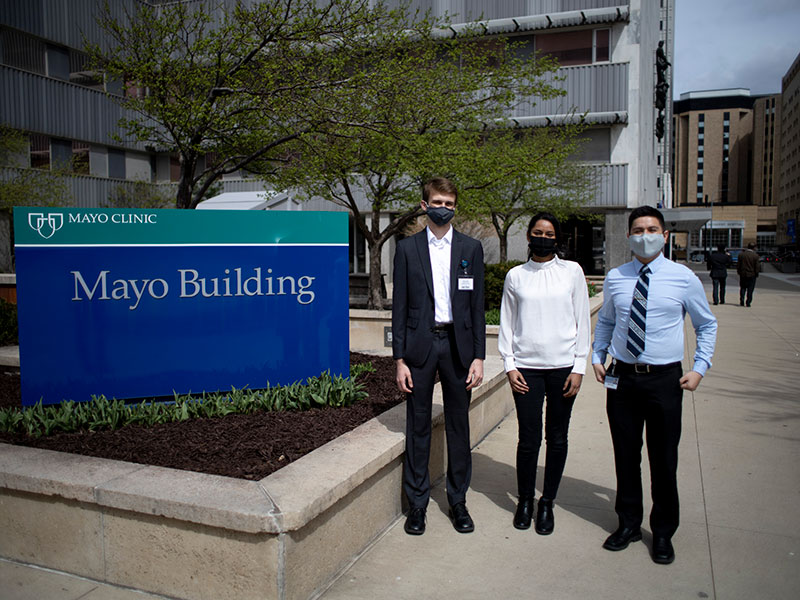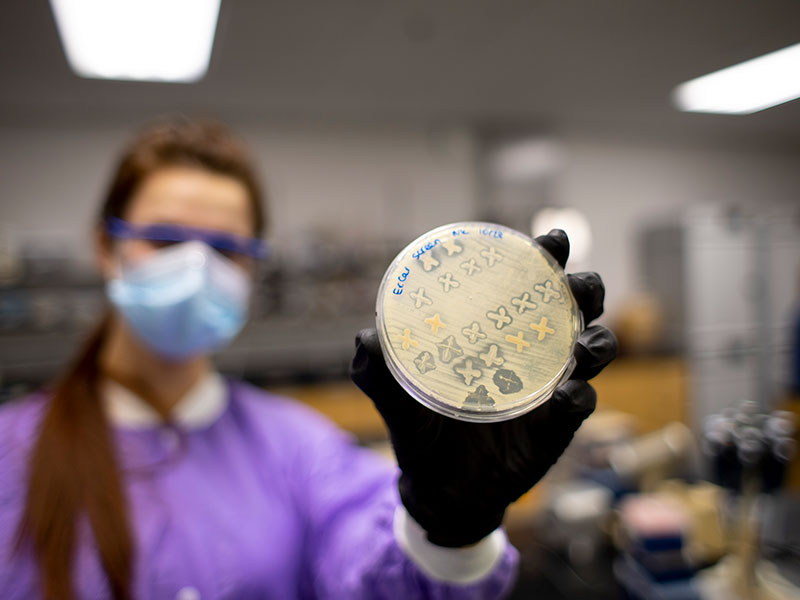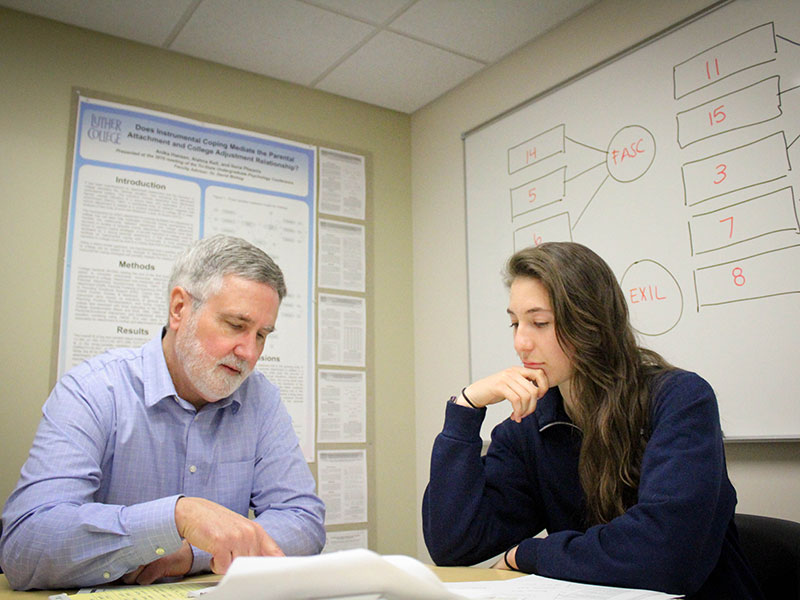Program Highlights
Experienced Faculty
Luther’s faculty have research and teaching experience in neurodevelopment, neurophysiology, and behavioral and cognitive neuroscience.
Comprehensive Curriculum
Get a broad overview of neuroscience by taking biology and psychology. Support this knowledge with courses in chemistry, computer science, and philosophy.
Research Opportunities
Work closely with Luther faculty members on their active research programs.
What You’ll Learn
As a neuroscience major, you’ll learn about the fundamentals of the field. The core courses and correlatives will expose you to the breadth of neuroscience. They will challenge you to develop competency in many areas of inquiry. These areas include quantitative and evidence-based reasoning. You’ll use these reasoning skills throughout the curriculum.
You’ll also learn how to find and interpret articles in the neuroscience primary literature. In addition, you’ll practice communicating scientific ideas verbally and through writing.
Careers and Outcomes
Luther’s neuroscience major provides strong preparation for your career.
Recent graduates have found employment in the following fields/professions:
- Academia: teach students from high school to graduate school.
- Medical or allied health: become a physician or psychologist. You can also work in fields like dentistry, optometry, pharmacy, physical and occupational therapy, speech therapy, and health technician.
- Research: conduct biomedical research, pharmaceutical research, and drug development. Or work in biomedical and pharmaceutical sales or veterinary science.
- Business, law, and public policy: work in economics, marketing, or for biotechnology companies. Find roles like patent lawyer or grant administrator. Land a job in neuro-law, government, public policy, or at a global health organization.
Rochester Semester
Luther’s Rochester Semester program is open to students of all majors, but it’s a great opportunity for neuroscience majors in particular. Our relationship with Mayo Clinic provides our students with premier internship experiences.


